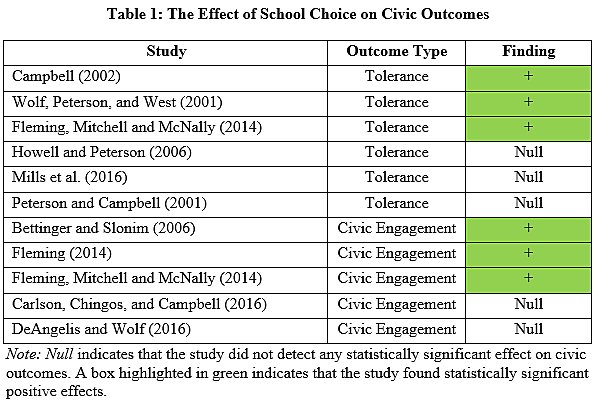One of the original arguments for establishing a system of common schools was that children from different backgrounds would learn to get along with one another and become proper citizens. However, when students throw rocks at a seven-year-old boy with a rare genetic condition, call him a monster on a daily basis, and push him towards contemplating suicide, we must wonder if our public schools are actually creating good citizens.
Over 90 percent of school-aged children in the U.S. attend public schools. While it is clear that government-run schools have a nearly perfect monopoly on education funding, they do not have a monopoly on producing tolerant citizens. In fact, it isn’t even close. According to the ten experimental or quasi-experimental studies that exist on the topic, none find that public schools outperform private schools on increasing student tolerance or civic engagement. As discussed in a recent Cato Policy Forum, and shown in table 1 below, a majority of the findings reveal that private school choice programs improve civic outcomes.

